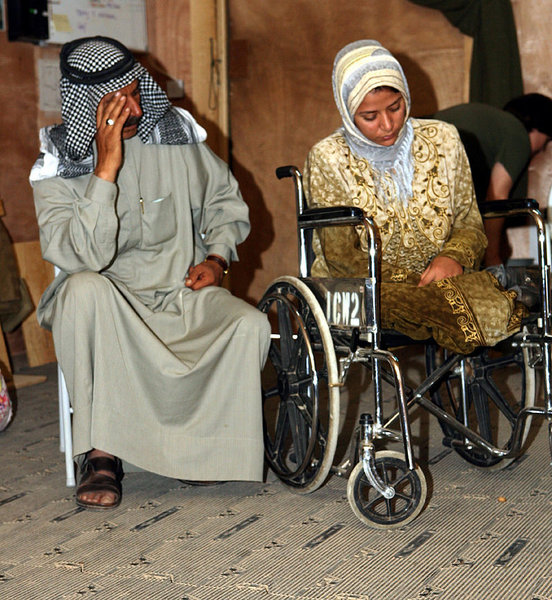Amplifying the voices of women with disabilities

At the 10th session of the Conference of States Parties to the Convention on the Rights of Persons with Disabilities, taking place from 13-15 June, UN Women will amplify the voices of women with disabilities and highlight the importance of their representation in decision-making.
An estimated one in five women is likely to experience disability in her lifetime. Women and girls with disabilities face multiple barriers and discrimination that hinder their access to education, economic opportunities, justice and participation in politics and decision-making.
Inclusion and full participation
This year's Conference theme, "The Second Decade of the CRPD: Inclusion and full participation of persons with disabilities and their representative organizations in the implementation of the Convention", and sub-theme, "Addressing the impact of multiple discrimination on persons with disabilities and promoting their participation and multi-stakeholder partnerships for achieving the SDGs in line with the CRPD", will provide a platform for building strategies to address the unique challenges faced by women with disabilities.
UN Women will participate in the Interactive dialogue between States parties (to the Convention) and the United Nations, and present its initiatives in support of the implementation of the Convention.
From where I stand
From where I stand: "Being a person with disability is challenging. Being a woman with disability adds extra challenges"
Malvika Iyer, a Disability Rights Activist and motivational speaker, received a standing ovation for her speech at the CSW61 Youth Forum. After losing her hands from a bomb blast, she became a strong advocate for inclusion of disability rights and gender.
Before the accident, I had a happy childhood. I was very good at sports and classical dance. Then the bomb blast happened. I immediately lost both my hands and had severe injuries to my legs, including multiple fractures, nerve paralysis and loss of sensation. For two years, I had to stay in bed, and went through a number of surgeries.
The pain was unbearable. To make things worse, people started pitying me. Succumbing to my injuries was fate. But staying down wallowing in self-pity was a choice. A choice I didn't want to make.
Slowly, I recovered and joined school. At first, I kept trying to be like everyone else, as if the accident hadn't happened. But accepting the emotional trauma that accompanied the accident, the loss of my arms and the disfiguration of my legs was the first step to beginning a new life, with new possibilities. I grew up surrounded by the idea that as girls, we must be perfectly beautiful and get married. And since I was disabled, everyone was convinced that my life was over.
But regardless of what anyone said, my mother never left my side and never made me feel that I was less of a person because of my disability. With her help, my spirit and confidence grew. You don't need a perfect body to succeed in life!
As a motivational speaker, I've spoken through different platforms around the world, but my greatest accomplishment is making a difference in the lives of people I've come across and influencing them in a positive way. They always come back to tell me that they felt hopeful and were inspired to stop complaining and start living their lives to the fullest. I feel that I have been given a second chance at life and I must use this gift to help people understand that we must never give up in life
Life is uncertain, and we must be ready for whatever challenge it brings. That's my message."
Malvika Iyer, now 28 years old, was born in Kumbakonam, Tamil Nadu, India. On 26 May, 2002, at the age of 13, Iyer lost both her hands in a grenade explosion at her home in Bikaner. The ammunition depot in her neighbourhood had caught fire earlier that year and unknown to her, pieces of bombs were scattered around. Today, Iyer is a Disability Rights Activist and working towards a Ph.D. in Social Work. A fierce advocate for inclusion of women with disabilities at all levels of the society, she gave a motivational talk at the Youth Forum organized by UN Women at the 61st session of the Commission on the Status of Women (CSW61). Her story shows what is possible, when all women and girls are empowered, as also reflected in SDG 5 on gender equality and SDG 10 on social, economic and political inclusion of all.
Source: UN Women
By https://www.marines.mil/unit/1stmardiv/PublishingImages/2006/060507-m-9896r-cag_6.jpg, Public Domain, https://commons.wikimedia.org/w/index.php?curid=23032153
Subscribe to Pravda.Ru Telegram channel, Facebook, RSS!




